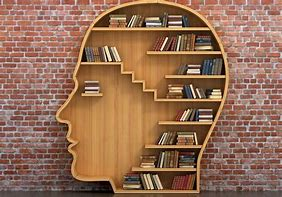SELF-HELP BOOKS AND MENTAL HEALTH, RELATIONSHIP STATUS: COMPLICATED
- Dec 14, 2021
- 4 min read
It engages the brain in world-building, helps you to empathize with people, and in turn helps you process your own emotions.
Life in the 21st century becomes more fast-paced as we get deeper into it, and in this race, while humans have started focusing more on their nutrition and physical health, mental health still seems to be on the backseat. Let’s be honest, we all have our bad days but some of us are always fighting an unseen battle inside our head. And if you’re one of those people who has been having a hard time, it is possible that one of these days you might consider picking up a self-help book. It’s a booming market for self-help literature, with a variety of subjects, but books popularly sold are focused on self-growth, quality of life, relationships, and mental health among others.
Self-Help books focused on mental health are of two kinds. One is instructive, cultivated with studies of all things that could be your triggers and how you can manage them in a better way to improve your mental health. Second, is the one woven with a fictional world, where the characters usually have their own mental health battles. It engages the brain in world-building, helps you to empathize with people, and in turn helps you process your own emotions.
In India, specifically, more than 15 crore people are said to be in active need of mental care, even then the shortage of specialists and lack of healthcare services make the treatment furthermore inaccessible for those who seek it. In addition, the stigma towards Mental Health discussions does not help to dissolve the paranoia to seek help. That’s where reading comes in as a savior for some. Some researchers have claimed self-help books to have positive effects in cases of anxiety and depression but there is still a lack of hard evidence for the scale of growth in the readers after reading through growth-oriented books.
Reading has always been regarded as a form of therapy. People find their way to books on their own, in-person therapy also involves recommended reading as a part of their journey for some and bibliotherapy exists on its own, a field of experts who are authorized to recommend literature to help in cases of grief, depression, and anxiety.
Self-Help books simply cost less than a consultation with a professional, are easily accessible, give a sense of security in the sense that you don’t have to share your mental health issues with the world in any form, and reading, on its own leaves with a sense of accomplishment. For the same reasons, more people are turning towards self-help books before approaching a proper consultation. But, in a plethora of choices, how do you know which one could be your partner on this journey?
Here’s what to look for:
A simple background check on the author. Individuals who work in a similar field and do continuous research on the same are more likely to be a good choice.
Narrow your scope. Find books specific to your needs. It is often easy to find books focused on social anxiety, stress, among others. The more specific the scope, the more likely it is to be of help to you.
Tips don’t do the trick. A long list of dos and don’ts leaves you nowhere. Self-Help Books that help you track your growth based on the content are the ones to go with.
Go with your instinct. Books can be hard to read for some, so pick the one you’re most drawn to. Some people are drawn to more non-fiction style self-help books and some, on the other hand, love a hint or more of fiction in it. Choose your style and go for it. Forcing yourself to read a book that you cannot connect with really won’t help your mental health anyway, turning reading more into a task than a therapeutic activity.
Review the reviews. Take the reviews with a pinch of salt. Reviews can help you avoid any triggers if any and let you know if the book is worth your investment or not.
What about Me? Well, I have read self-help books of both kinds. While a list of all things in detail which might be troubling me with a great mix of anecdotes from the author was fun to read and helpful at times. I found more solace in a story wrapped all around it. It helped me escape in a different world than my own and eventually helped me accept my own emotions, fears and gave me a new perspective. I feel that a good story always helps you learn more about yourself and the people around you. It is not only important to care for your mental health but also to expand your knowledge, to help your loved ones who might be battling with mental health issues.
That said, literature in your case might not turn out to be what you need, rather it might act as a trigger reminding you of your mental battles. And there is nothing to be worried about here, self-help books are to be read from an objective point of view. You can take from it, all that you can adapt to and leave the rest. These are books catered to a large audience and not tailored to your personal experiences. So, in case self-help books miss the mark for you, it never means you can’t get better. Contacting a professional might be a great next step.
Written By - Riya Nagpal
Your mental health matters as much as your physical health. Don't hesitate to take a step towards your mental well-being. If you’re looking at talking to a professional, book your Initial Consultation with us on https://www.themoodspace.com/freeconsultation or write to us at info@themoodspace.com. Take a step towards bettering your mental wellbeing because you deserve it!





Comments